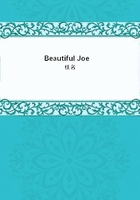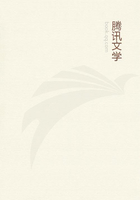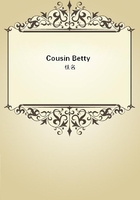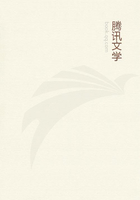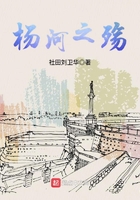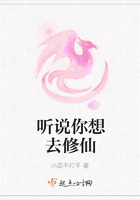Read in the light of this exaltation, there was a new meaning in the words which her mother had penciled upon the card attached to the bunch of anemones. The door of the house in the Cromwell Road opened;gloomy vistas of passage and staircase were revealed; such light as there was seemed to be concentrated upon a silver salver of visiting-cards, whose black borders suggested that the widow's friends had all suffered the same bereavement. The parlor-maid could hardly be expected to fathom the meaning of the grave tone in which the young lady proffered the flowers, with Mrs. Hilbery's love; and the door shut upon the offering.
The sight of a face, the slam of a door, are both rather destructive of exaltation in the abstract; and, as she walked back to Chelsea, Katharine had her doubts whether anything would come of her resolves.
If you cannot make sure of people, however, you can hold fairly fast to figures, and in some way or other her thought about such problems as she was wont to consider worked in happily with her mood as to her friends' lives. She reached home rather late for tea.
On the ancient Dutch chest in the hall she perceived one or two hats, coats, and walking-sticks, and the sound of voices reached her as she stood outside the drawing-room door. Her mother gave a little cry as she came in; a cry which conveyed to Katharine the fact that she was late, that the teacups and milk-jugs were in a conspiracy of disobedience, and that she must immediately take her place at the head of the table and pour out tea for the guests. Augustus Pelham, the diarist, liked a calm atmosphere in which to tell his stories; he liked attention; he liked to elicit little facts, little stories, about the past and the great dead, from such distinguished characters as Mrs. Hilbery for the nourishment of his diary, for whose sake he frequented tea-tables and ate yearly an enormous quantity of buttered toast. He, therefore, welcomed Katharine with relief, and she had merely to shake hands with Rodney and to greet the American lady who had come to be shown the relics, before the talk started again on the broad lines of reminiscence and discussion which were familiar to her.
Yet, even with this thick veil between them, she could not help looking at Rodney, as if she could detect what had happened to him since they met. It was in vain. His clothes, even the white slip, the pearl in his tie, seemed to intercept her quick glance, and to proclaim the futility of such inquiries of a discreet, urbane gentleman, who balanced his cup of tea and poised a slice of bread and butter on the edge of the saucer. He would not meet her eye, but that could be accounted for by his activity in serving and helping, and the polite alacrity with which he was answering the questions of the American visitor.
It was certainly a sight to daunt any one coming in with a head full of theories about love. The voices of the invisible questioners were reinforced by the scene round the table, and sounded with a tremendous self-confidence, as if they had behind them the common sense of twenty generations, together with the immediate approval of Mr. Augustus Pelham, Mrs. Vermont Bankes, William Rodney, and, possibly, Mrs.
Hilbery herself. Katharine set her teeth, not entirely in the metaphorical sense, for her hand, obeying the impulse towards definite action, laid firmly upon the table beside her an envelope which she had been grasping all this time in complete forgetfulness. The address was uppermost, and a moment later she saw William's eye rest upon it as he rose to fulfil some duty with a plate. His expression instantly changed. He did what he was on the point of doing, and then looked at Katharine with a look which revealed enough of his confusion to show her that he was not entirely represented by his appearance. In a minute or two he proved himself at a loss with Mrs. Vermont Bankes, and Mrs. Hilbery, aware of the silence with her usual quickness, suggested that, perhaps, it was now time that Mrs. Bankes should be shown "our things."Katharine accordingly rose, and led the way to the little inner room with the pictures and the books. Mrs. Bankes and Rodney followed her.
She turned on the lights, and began directly in her low, pleasant voice: "This table is my grandfather's writing-table. Most of the later poems were written at it. And this is his pen--the last pen he ever used." She took it in her hand and paused for the right number of seconds. "Here," she continued, "is the original manuscript of the 'Ode to Winter.' The early manuscripts are far less corrected than the later ones, as you will see directly. . . . Oh, do take it yourself,"she added, as Mrs. Bankes asked, in an awestruck tone of voice, for that privilege, and began a preliminary unbuttoning of her white kid gloves.
"You are wonderfully like your grandfather, Miss Hilbery," the American lady observed, gazing from Katharine to the portrait, "especially about the eyes. Come, now, I expect she writes poetry herself, doesn't she?" she asked in a jocular tone, turning to William. "Quite one's ideal of a poet, is it not, Mr. Rodney? I cannot tell you what a privilege I feel it to be standing just here with the poet's granddaughter. You must know we think a great deal of your grandfather in America, Miss Hilbery. We have societies for reading him aloud. What! His very own slippers!" Laying aside the manuscript, she hastily grasped the old shoes, and remained for a moment dumb in contemplation of them.
While Katharine went on steadily with her duties as show-woman, Rodney examined intently a row of little drawings which he knew by heart already. His disordered state of mind made it necessary for him to take advantage of these little respites, as if he had been out in a high wind and must straighten his dress in the first shelter he reached. His calm was only superficial, as he knew too well; it did not exist much below the surface of tie, waistcoat, and white slip.

